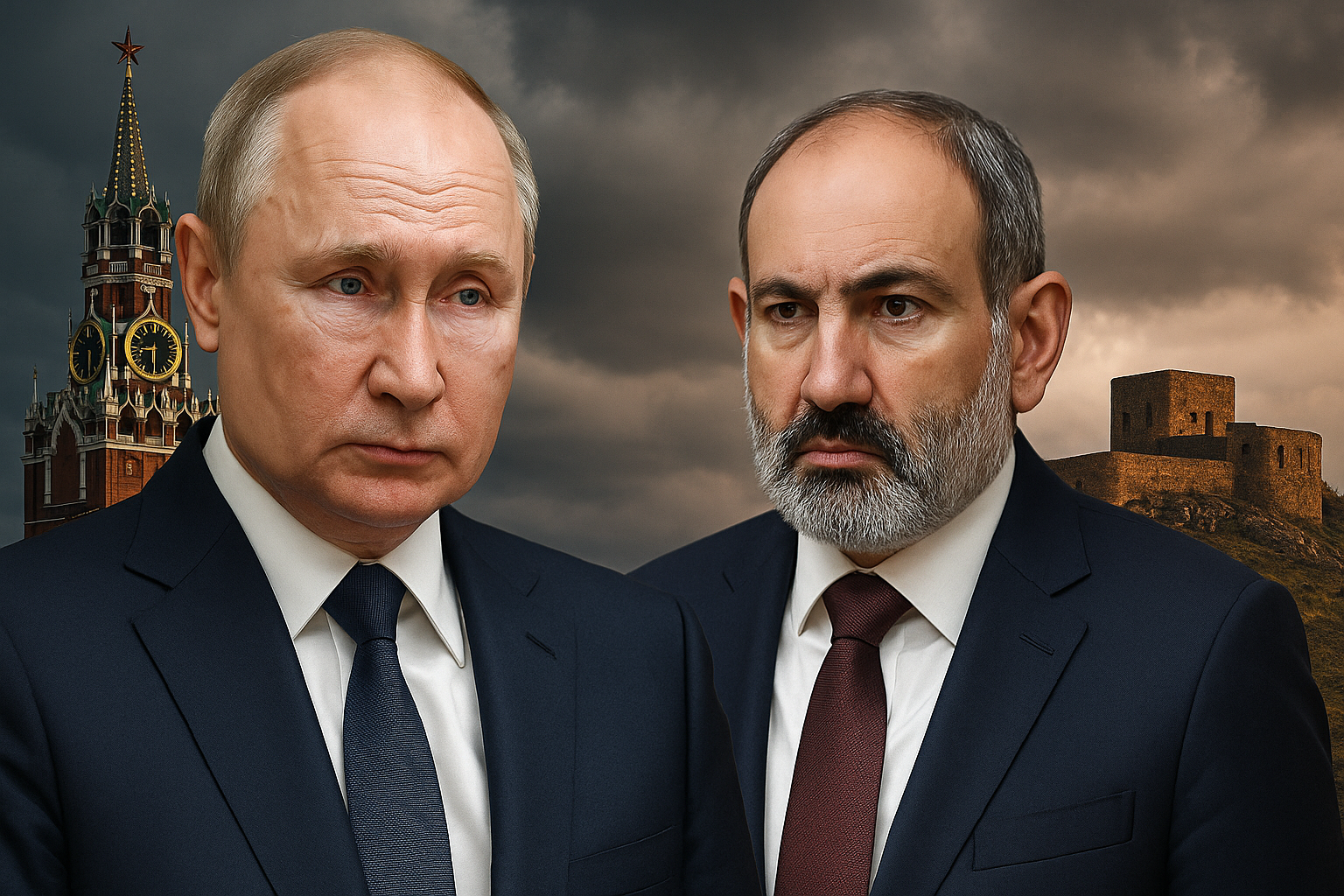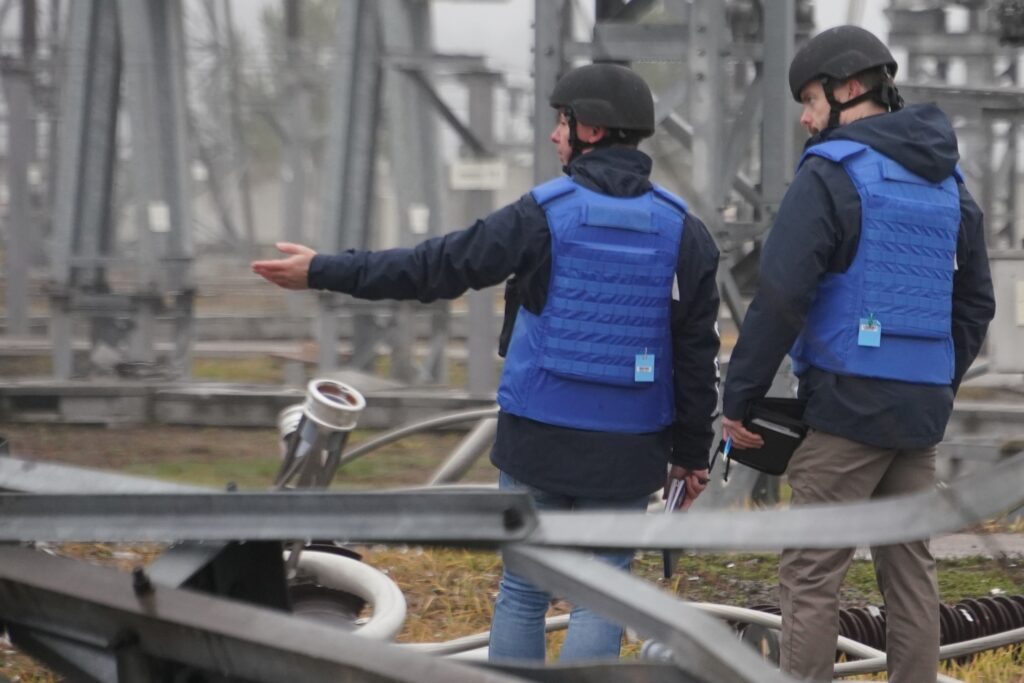Moscow vs. Yerevan: How Russia is taking revenge on Pashinyan
7 July 14:40
Moscow is using religious structures to stop Armenia’s European integration course
Recent political developments in Armenia are increasingly resembling a confrontation between two worlds – the newly independent Armenia and the imperial past in the form of Russia. The arrests of influential clerics, the dismantling of pro-Russian business assets, and the deafening war for influence on the streets of Yerevan are all evidence of this: Moscow is playing a game of attrition to regain control of the former “union republic.”
Demonstrative neutrality
2020 was a turning point. During the Second Karabakh War, Armenia expected support from the CSTO and Russia, but instead received tacit indifference. The Kremlin’s choice was obvious: not to help the government of Nikol Pashinyan, which came to power in a bloodless revolution in 2018, without Moscow’s involvement and with a pronounced anti-Russian discourse.
The Kremlin’s gesture was not just an act of political punishment, but the starting point of a campaign to undermine the internal situation in the country. Familiar tools were used: mobilization of pro-Russian politicians, pressure through business, media attacks, and the use of the religious factor as a lever of influence.
Kremlin’s revenge through elections
Moscow hoped that defeat in the war would break Pashinyan’s position. In June 2021, early parliamentary elections were held in Armenia. The Kremlin openly supported the “Armenia” bloc led by Robert Kocharyan, a politician from the past who was well integrated into Russian elites. But despite all efforts, Pashinyan won with more than half the vote.
This was a personal defeat for the Kremlin. After all, despite the economic crisis, moral fatigue, and the trauma of war, Armenians have made a choice in favor of political independence.
As Armenian journalist Natalie Alexanyan explained, “recent events clearly prove Russia’s direct interference in Armenia’s internal affairs. The visit of the Russian oligarch of Armenian origin Samvel Karapetyan to the country and his attempts to unite people from Karabakh around him indicate coordinated actions of Russian influence.”
She also draws attention to the growing role of security forces trying to contain these processes.
“My sources tell me that possible forces from Russia have tried to infiltrate Armenia, which I have openly written about, and the Ministry of Internal Affairs is dealing with it,” she added.
Karapetyan is the owner of the Tashir Group construction holding, which is unofficially considered a channel of FSB influence in Armenia.
His public rhetoric about “restoring order” and “protecting the church” almost verbatim reproduced the theses of Russian propagandists.
Church as an instrument of destabilization
When the electoral scenario did not work, Moscow activated other levers.
The religious space, traditionally influential in Armenia, became a target of manipulation.
In June 2024, two high-ranking representatives of the Armenian Apostolic Church, Bishop Bagrat Galstyan and Archbishop Mikayel Ajapahyan, were arrested in Yerevan.
These figures have long been associated with criticism of the current government, and their statements often echoed the messages broadcast by Russian media. According to the investigation, their activities could be part of an attempt to organize an anti-government conspiracy. The arrest of the churchmen was a blow to the Kremlin’s attempt to legitimize the protest through the authority of the church.
Economic front: minus one oligarch
In parallel with political and spiritual attacks, Yerevan began to rid itself of Moscow’s economic influence. One of the most high-profile examples was the loss of control over an energy company owned by Samvel Karpetyan, an Armenian-Russian oligarch who owns the Tashir holding.
Karpetian had been considered the “energy king” of Armenia for decades, but under the new policy of the Pashinyan government, his business lost key positions. The nationalization or gradual transfer of assets to state or pro-Western control signaled that the era of Russian oligarchs in Armenia is coming to an end.
Moscow’s time is running out
Despite all its attempts – from protests and incitement to conspiracies through the church environment – Russia has not yet succeeded in changing the government in Armenia.
“The rating of Pashinyan and the Civic Contract party actually remains almost unchanged, and the fall is mainly shaped by fake opinion polls and controlled media,” says Natalie Alexanyan.
She notes that his support among the population is actually maintained despite external and internal pressure.
Moreover: Yerevan is gradually shedding the remnants of post-Soviet shackles. Participation in the CSTO is on hold. Armenia is expanding its partnership with France, the United States, and the European Union. The course to the West is becoming not only a political choice, but also part of the national strategy.
According to a journalist from Yerevan, the majority in Armenia supports Euro-Atlantic integration.
According to her, about 55-60% of the population supports joining the EU, and trust in Russia has declined sharply in recent years.
“Russia is considered a savior by those forces that have direct ties and receive support from Russia. Russian influence is declining, and the people are deeply concerned about the preservation of national sovereignty,” concludes Natalie Alexanyan.
Moscow, which for a long time considered Armenia its sphere of influence, is losing not only leverage, but also the very logic of control.
The majority of Armenians are increasingly aware that an alliance with the Kremlin is not a guarantee of security, but a pass to disenfranchisement, isolation, and authoritarianism.
Author: Asif Aliyev









